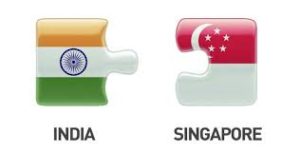The government will soon set up a specialised agency to investigate large corporate accounting frauds. It is keen to establish a robust mechanism for faster inquiries into scams such as the one at Satyam Computer Services, which overstated earnings for several years under a previous management.
The proposed agency is likely to examine accounting frauds of certain classes of listed companies or those of Rs 500 crore and more.
“The threshold for accounting frauds to be probed by the upcoming agency is likely to be Rs 500 crore and above. It could also probe frauds of certain classes of listed companies,” said a senior government official. “Currently, there’s a lack of specialisation required to probe complex accounting frauds. The agency will ensure swifter probes.”
First suggested in the aftermath of the Satyam fraud, in which the auditor was also implicated, the upcoming agency will have an overarching role to regulate chartered accountants as well as set standards. It will have forensic auditors on its panel as well.
At present, the Institute of Chartered Accountants of India (ICAI) has authority to investigate and take disciplinary action in cases in which an auditor is involved. Any fraud below the threshold set by the government could still be investigated by the professional association.
ICAI has requested the corporate affairs ministry to not dilute its authority. If the government is keen on setting up an authority, ICAI has suggested that this look at high-value accounting scams above a threshold of Rs 1,000 crore.
“We have made a representation to the government that ICAI’s mandate should not be diluted and authority to initiate probe and take disciplinary action against auditors should rest with the institute,” ICAI president Manoj Fadnis told ET.
In recent years, ICAI has probed auditors of companies such as Reebok, Sesa Goa, Satyam and the Saradha Group among others. These inquiries followed references sent by the Serious Fraud Investigation Office (SFIO).
“The agency will strengthen the government’s mechanism and will ensure faster enquires into accounting frauds. For the auditing profession as well, it will be a very positive step as the agency will oversee quality of profession,” said Lalit Kumar, partner at J Sagar Associates. “But the government also has to ensure that ICAI’s mandate is not diluted.”
A recent study by Assocham and Grant Thornton India said there was a 45 per cent increase in Indian corporate fraud in the past two years. The proposed agency will have powers to penalise audit firms in case they are found guilty of misconduct. Penalty could also include the disbarment of such audit firms.
The agency will also be solely in charge of setting up and revising accounting standards and will have professionals from industry and several government bodies on its panel. “The agency will make recommendations on formulation and laying down of accounting and auditing standards for companies,” a senior government official told ET. “It will also monitor and enforce compliance and oversee quality of service of professionals in the industry.”
ET VIEW
No Duplication Please, Overhaul SFIO
Duplication makes no sense. India already has a specialised agency, the Serious Fraud Investigation Office (SFIO) to do cutting-edge investigation on financial frauds. The Institute of Chartered Accounts of India, on its part, can take disciplinary action against errant auditors. True, the SFIO’s functioning has been dismal so far, and what is needed is to transform the agency to take on new and complex probes. It should hire professionals laterally including cyber security experts, forensic auditors and tap the best talent from other investigating agencies. Ideally, it should draw together a team depending on the case. But to attract the best talent, it also needs to pay market-linked salaries.
Source: http://economictimes.indiatimes.com/articleshow/49927368.cms






